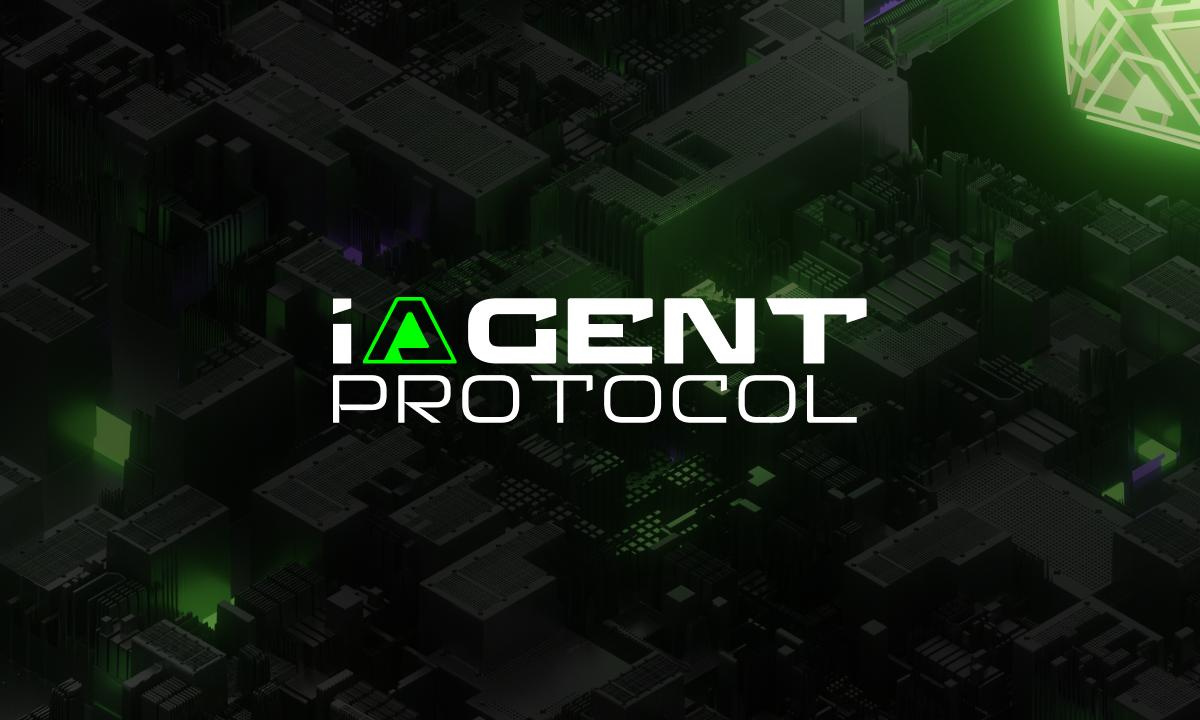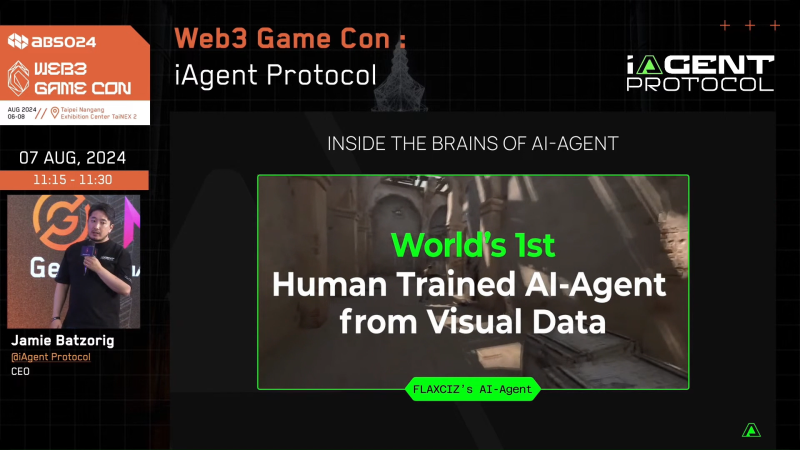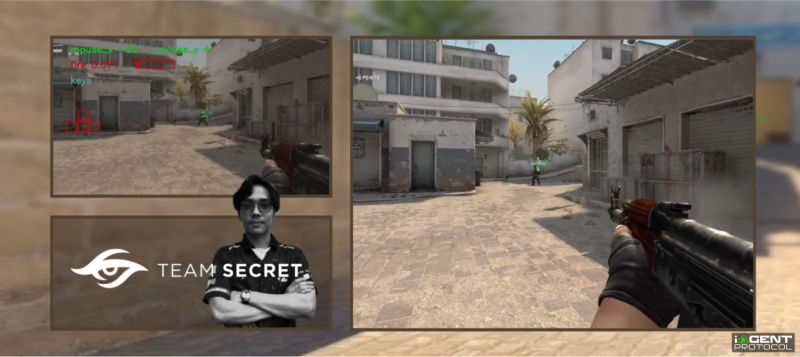
iAgent Protocol Unveils Revolutionary Human-Trained AI-Agent from Visual Data
Los Angeles, CA, August 14th, 2024, Chainwire

iAgent protocol introduced an innovative AI-agent as digital asset class at Malaysia Blockchain Week in Kuala Lumpur and Asia Blockchain Summit in Taiwan this month, allowing gamers around the world to create, train, trade, and monetize personalized game AI-agents that take the NPCs of the past to a whole new level. iAgent protocol has developed the world’s first AI-agent trained from pro-players’ gameplay footage in Counter-Strike. This new AI asset class has the potential to spur a renaissance of innovation and growth within the gaming industry.

At both MBW and ABS, attendees received a first look at the revolutionary new class of digital gaming assets. iAgent Protocol presented new technology on August 1st and 6th, which uses AI Modules to train gaming characters based on gameplay footage. Their presentation featured an iAgent trained from the video footage of Flaxciz, a professional CS player from Team Secret.
iAgents are here to not only rehaul the outdated NPCs of the gaming world, but also to empower all gamers within the ecosystem. Any user can train an AI-agent with the gameplay footage and then trade, rent, and monetize their personal game agents. Whether it’s a casual gamer playing with friends, or an entire studio wanting to add world-class human-trained AI characters to their game, iAgent offers new solutions and possibilities.
In collaboration with Alliance, a global esports powerhouse competing at the forefront of the world’s most popular games, and Team Secret, a professional esports organization, iAgent was able to train a character based on the gameplay footage of Flaxciz.
Jamie Batzorig, CEO of iAgent and keynote speaker, unveiled the human-trained iAgent for the first time. The development team worked with AethirCloud, the project building scalable decentralized cloud infrastructure for Gaming and AI. Powered by DePIN, iAgent protocol leverages underutilized GPU resources from around the world and transforms them into a distributed GPU network dedicated to training AI-agents.
iAgent is supported by GEDA, a web3 esports ecosystem that is onboarding esports enthusiasts, and Emerge group, gaming marketing agency who have worked with well-known names like Valorant, Mobile Legends, and Riot Games.
The team at iAgent aims to democratize gaming by creating AI-agents as digital assets and providing all gamers with the tools and infrastructure to train their own Agents. These human trained AI-Agents represent players’ gaming strategies, styles, and creativity turning them into a digital representation of their gaming persona.
By creating the world’s first AI-agent trained on a pro esports player footage, iAgent is aiming to alter the landscape and future of gaming. The tools used to create this groundbreaking digital asset and gaming character will soon be available to everyone in the gaming ecosystem. A player only needs gameplay footage to develop their own AI-agent. With the first-of-its-kind AI_NFT standard (OFT), the creators will have full ownership over their AI-agents running on multiple chains using innovative technology developed by LayerZero Labs.
About iAgent
The iAgent protocol allows the world gamers to train their own AI agents to mimic the players behavior from gameplay footage, powered by DePIN, decentralized computing, thereby creating a new digital asset class on the blockchain.
Users can follow iAgent on X, notifications on.
Press contact: Sarah@tokenpr.com
Source: iAgent Protocol
Los Angeles, CA
Disclaimer:
This press release may contain forward-looking statements. Forward-looking statements describe future expectations, plans, results, or strategies (including product offerings, regulatory plans and business plans) and may change without notice. You are cautioned that such statements are subject to a multitude of risks and uncertainties that could cause future circumstances, events, or results to differ materially from those projected in the forward-looking statements, including the risks that actual results may differ materially from those projected in the forward-looking statements.
